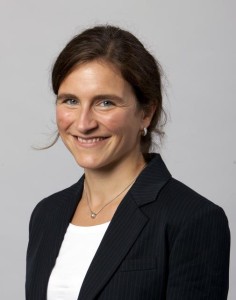Welcome to MBA Voices
In this section, we bring you interesting voices of MBA students from around the globe. Hear their stories and discover exciting aspects of their career and academic experience. For this release, Solomon George of GlobalMBAcareer caught up with Ingrid of London Business School to hear her voice. Read the full conversation below.
Ingrid – How a Ph.D. Biochemistry & LBS MBA came together?

Name: Ingrid Marchal-Gerez
Nationality: French
Business School: London Business School
Year of Graduation: 2014
Career Specialization: Healthcare
Love: Food & wine, science, London life, learning, my two kids
Hate: wasting time
Interesting Works: Nursed HIV positive and malnourished children in Africa ∣ Co-chaired the CleanTech Challenge 2014 ∣ Launched a medication adherence application in the UK: Care4Today™ Mobile Health Manager
It is rare to find a biotechnology professional wanting to do a world class MBA? What prompted you?
In the biotechnology field you have to become very specialized. I am a biochemist and I had focused on industrial biotechnology and enzyme engineering. I wanted to open new possibilities in my career and try to get back to health care. I felt I would benefit from an MBA as it complements my scientific background and technical knowledge. Further, it will help me to leverage my commercial experience to understand how all aspects of business and science come together. On a more personal level, it’s an amazing opportunity for developing self-awareness and better understanding what your strengths and values are.
You have started your career on a research role and progressed to the business side. What inspired you to do that?
I was always interested in how science can turn into useful innovation and business. It has been the guiding principle throughout my career. I did science not only to understand how it works, but also to bring innovation to market and make a difference to people’s lives. Hence in terms of career choice, I decided not to go for an academic career.
I started by co-founding a bioinformatics start up, where I helped scientists to make sense of the tons of sequenced biological data. Then I turned to industrial biotechnology where I helped clients to use biological resources to perform cleaner industrial processes.
From the business side you moved into creating new services and business lines. How did you do that?
I worked in small biotechnology companies where it was very easy to take an idea from the lab and submit it for feedback to customers, and see whether it makes sense or not. It was there I put together my technical knowledge and understanding of the market. I was close to the customers and I could see their needs and I was also close to the labs where I could see the technical know-how to address these needs. That is how I got to identify new opportunities and design new services and then marketed them.
Why did you choose London Business School?
I wanted to choose a business school that had a highly diverse class, based in a world class city and with a top reputation – London Business School was the obvious choice. In terms of nationalities, the British students just made around 8% in my class. This is a testimony to the truly international composition. Also, its central London location in close proximity to many leading firms and opportunities to meet business leaders was a pull.
What it is like to go through the LBS MBA?
I enjoyed every bit of it. You learn a lot in the class but also through your fellow students and you meet amazing, inspiring people. Since LBS stands out for diversity, in the study groups it is typical we have people of different nationalities with very different backgrounds, for example coming from start-ups, NGO’s, accountants, consultants etc. You get to see the best of the ways they work. You learn to think like them and also influence them to think from your perspectives. Social life is definitely important and you make great friends.
As part of your LBS MBA, you co-chaired the CleanTech Challenge. Tell us about it and what has been your personal takeaways?
The CleanTech Challenge is a business competition for students who want to become entrepreneurs in the clean tech space. It is jointly organised by London Business School and University College London. This year, I co-chaired the competition from start to finish. It was challenging because we were all volunteers and there was no hierarchy, and as MBA or PhD students we were all super busy and over committed. I learnt a lot in the experience. I got to lead a diverse team made of peers and work very closely with the other co-chair, from UCL. It’s a long project as the competition runs for 3 months and through 3 rounds. We had to keep the team motivated and we had to deliver.
I met fantastic people: students, entrepreneurs, mentors and judges, people who work in innovation, clean tech and energy industry. I was exposed to a great deal of entrepreneurship and could see first-hand how investors go about evaluating companies and also what makes a good pitch for an entrepreneur.
What impact has the LBS MBA had on you?
Intellectual stimulation: It taught me to think faster and make decisions on the spot in an ambiguous environment.
I learnt a lot and did things I thought I was not able to do before. It gives you a positive and entrepreneurial mind-set: it teaches you that you can do almost everything, because you don’t need to do it alone. If you don’t know how to do something, then you find someone who can do it with you. If you approach them in the right way, people are willing to help, and you achieve as a team.
One of the highlights of the MBA was the Global Business Experience. We went to Johannesburg to work with micro entrepreneurs in the township of Alexandra. This had a profound impact on me. We met entrepreneurs who had been born and raised in Alexandra and had little or no business education, but here they were, building on their strengths and relationships to earn a living usually through multiple micro businesses. They are real entrepreneurs, with a positive, “can-do” attitude. We went there to help them develop their business further, but they taught us as much as we taught them.
What is your advice for biological science professionals in terms of the benefits of doing an MBA?
For people coming from a science background, MBA is a great complement to the scientific mind set because you add breadth to the depth of thought. Biotechnology and healthcare are hot fields that are changing fast and if you want to bring a real contribution to these fields, an MBA will help you to understand how to bring innovation to the market and make a difference to people.
Does the MBA help you to see things differently in terms of a career in the Biological sciences?
Absolutely – it explains a lot of things I have experienced. I can now understand why certain opportunities that I had identified on the basis of the science may never come to life because it makes no business or economic sense. It also shed light on how investors or venture capitalists see the risk in biotechnology companies. You need to know this if you want to have a chance of receiving funding. If you have a fantastic idea, but if it is too risky and far from the market you will not get any funding and your science, no matter how beautiful it is, will not bring any benefit. So you should think of how to reduce the risk step by step. It can be by identifying and aiming for the easier, less ambitious opportunities before you can reach to very ambitious ones. Think big, start small. When you know that it certainly helps you to prepare a business plan or to shape your business differently.
What is the career direction you want to pursue post-MBA?
Healthcare. I am joining Johnson & Johnson to work on digital health, as a commercial trial manager within Janssen Healthcare Innovation. I did my internship there and continued part-time during my 2nd year of studies. Technology is disrupting healthcare and the team I work with aims to embrace the changes and lead the transformation of healthcare.
It is certainly a change from biotech. I didn’t necessarily expect to make that move, but I met great people in my first year of MBA who took me through this new field and I totally enjoyed it. I think my experience of working in entrepreneurial businesses helped me to land and thrive there.
But you have to be prepared for surprises when you embark on an MBA. So open your mind and look out for opportunities!

Globalmbacareer



Latest posts by Globalmbacareer (see all)
- Stuart Barr – Harmonizing Music & Business (Part 2/2) - 30th March 2017
- Stuart Barr – Harmonizing Music & Business (Part 1/2) - 28th March 2017
- Brad Jaeger – Blazes through Racing Circuit & MBA - 25th May 2016



